Through Their Eyes: COVID-19 Chronicles with Serilah Nyawanga
This post is part of a new series by The Water Project meant to highlight the perspectives and experiences of the people we serve and how the COVID-19 pandemic is impacting them. We invite you to read more of their stories here.
“53-year-old Serilah looks tired and worn out,” stated Training Officer Jacquey Kangu with concern while reflecting on her recent interview of Serilah Nyawanga.
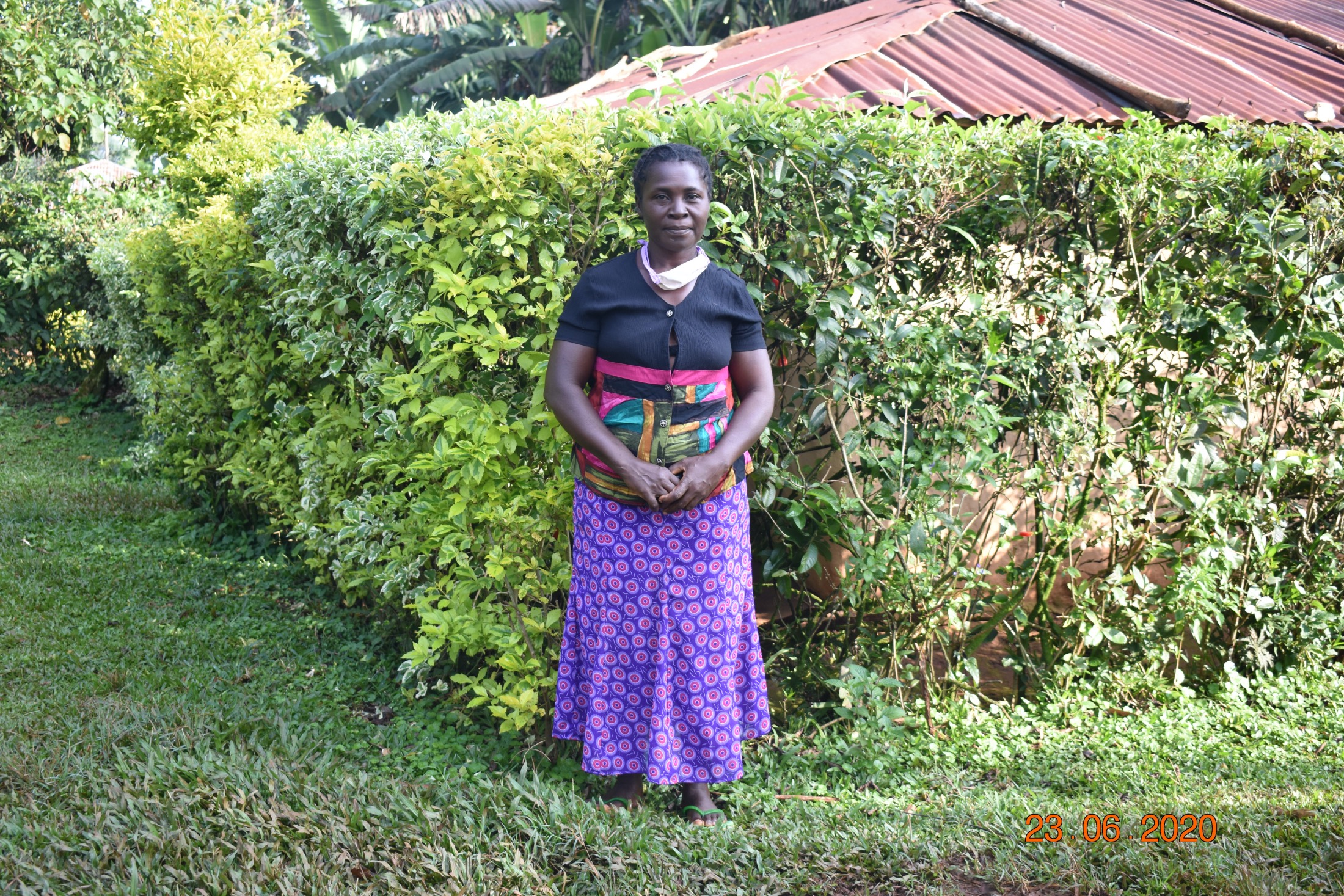
Serilah Nyawanga stands outside her homestead to greet us.
Serilah lives in the village of Shikhombero in Western Kenya, where our team recently visited to conduct a COVID-19 prevention training and monitor their protected water source, Atondola Spring. Shortly after, we returned to check in on the community, offer a COVID-19 refresher training, and ask how the pandemic is affecting their lives.
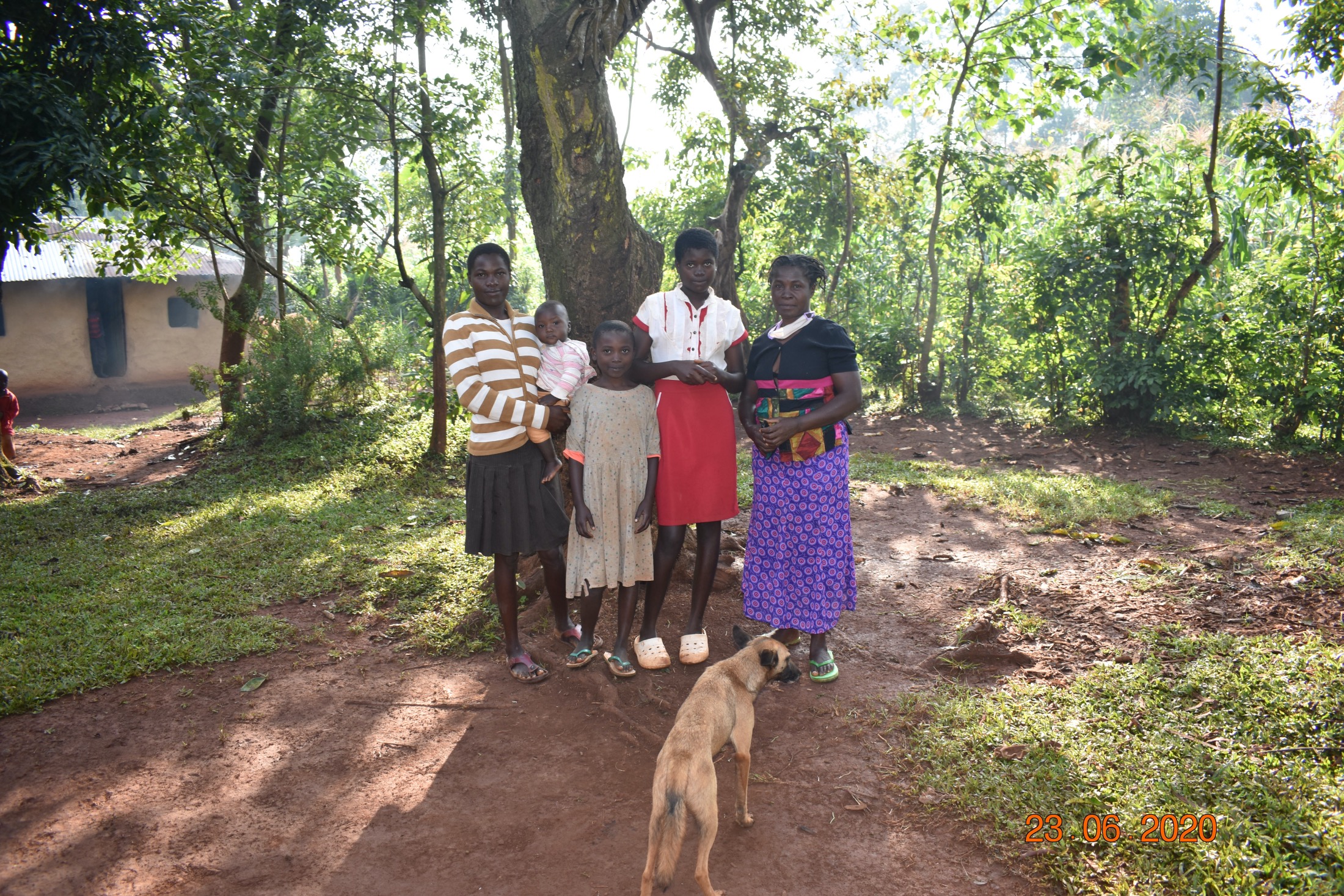
Serilah (right) stands with her children at home during the pandemic.
Serilah agreed to meet with us while observing all COVID-19 precautions and showed us how her daily life has changed since the virus came to Kenya earlier this year.
“This is a lady we met during spring protection and training who was vibrant and happy, but a few months after the pandemic, she looks different. She misses her husband, who can no longer visit, but of much more concern is that she is just a farmer and her husband used to supplement the income by taking care of the family. Now that he is not working, there is no financial assistance, so she has had to seek alternative ways to take care of the family.”
“Yes, it is evident that COVID-19’s impact has really changed not only Serilah but the entire community of Shikhombero,” Jacquey said.
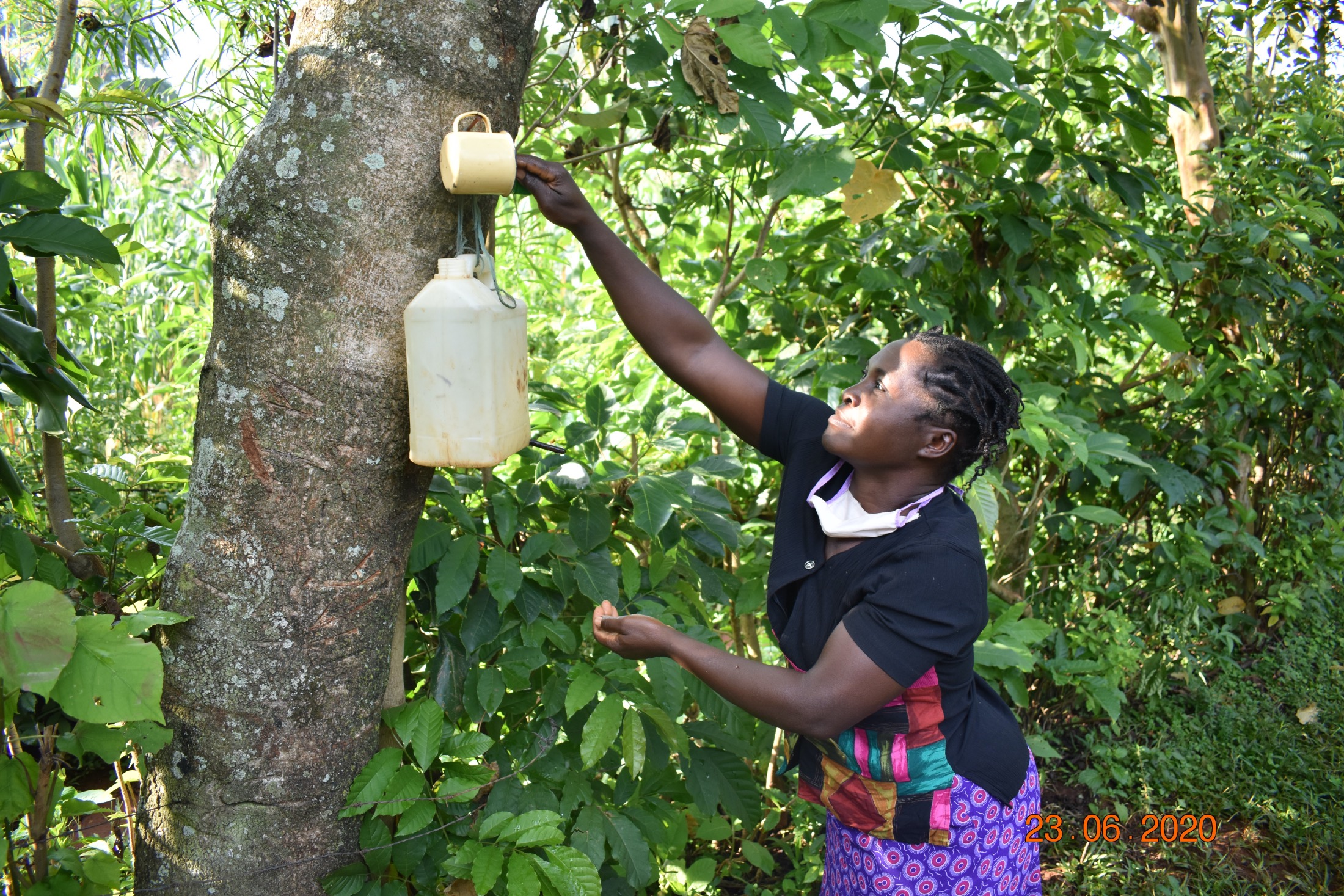
Serilah reaches for the soap at her home handwashing station.
“We are living under fear and worry. Life has really hardened due to the tough economic situation,” said Serilah. At the time of Serilah’s interview, the capital city Nairobi was still under lockdown. Her husband, who usually works there and sends money home, could neither leave nor work due to the lockdown.

Handwashing at home
“My son left for Homa Bay County for manual work just a few weeks ago. My prayer is that he keeps safe and does not contract the virus since we (Kenya) have positive cases there. My school-going children are home with me, which is not supposed to be so…I have a fear for my children that they are losing study time when they are home.”
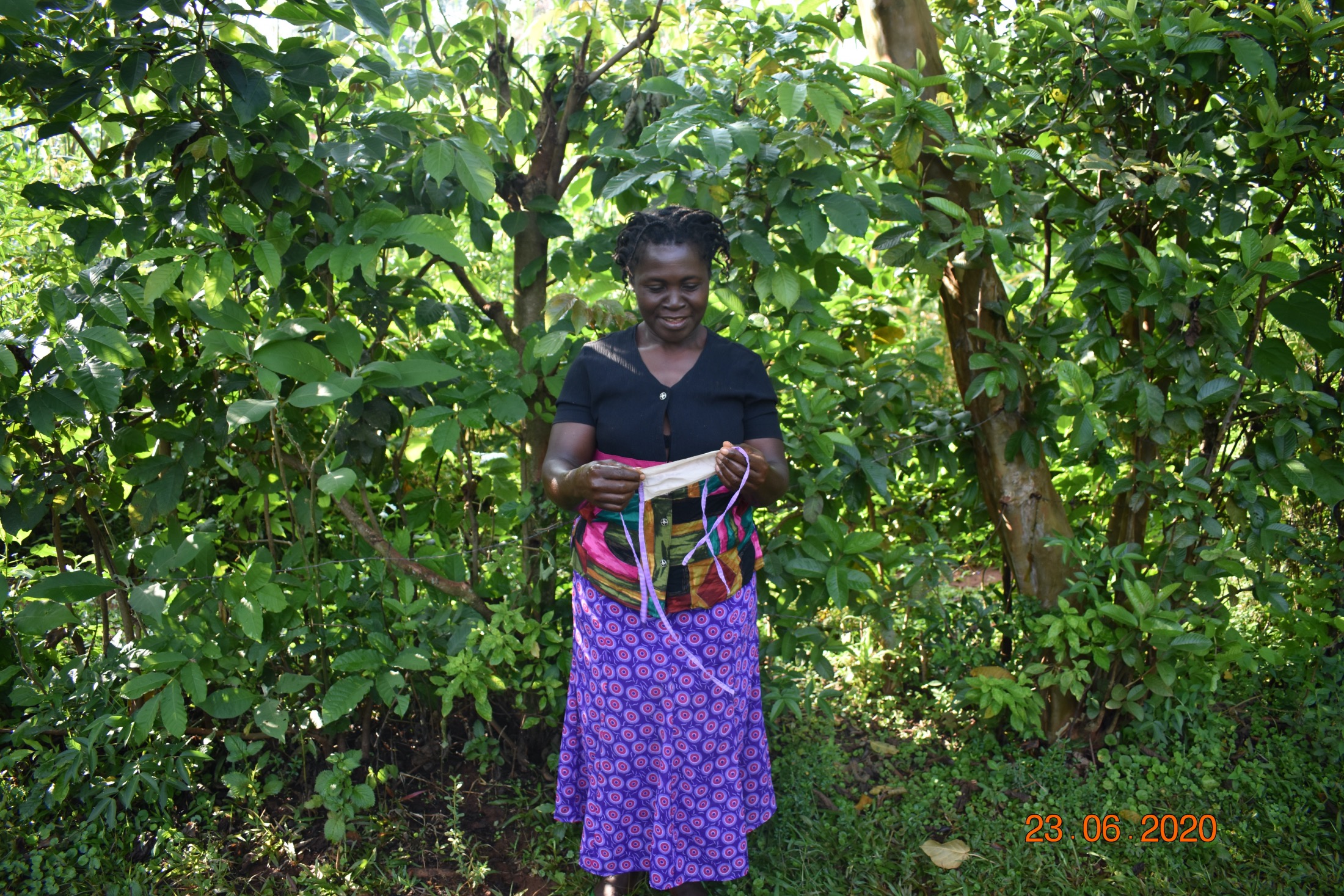
Serilah shows her mask before putting it on.
The one thing that has remained constant for Serilah throughout the pandemic is her access to clean and safe water from Atondola Spring.
“We are using safe and clean water. Imagine washing hands with dirty water, or using dirty water! I would be very worried since COVID-19 [is not kind] to dirty [hands].”
“Nowadays I have to observe hygiene like washing hands with soap and cleaning the containers before fetching water. I never used to do these before the pandemic; I am keener on hygiene to keep the virus away.”
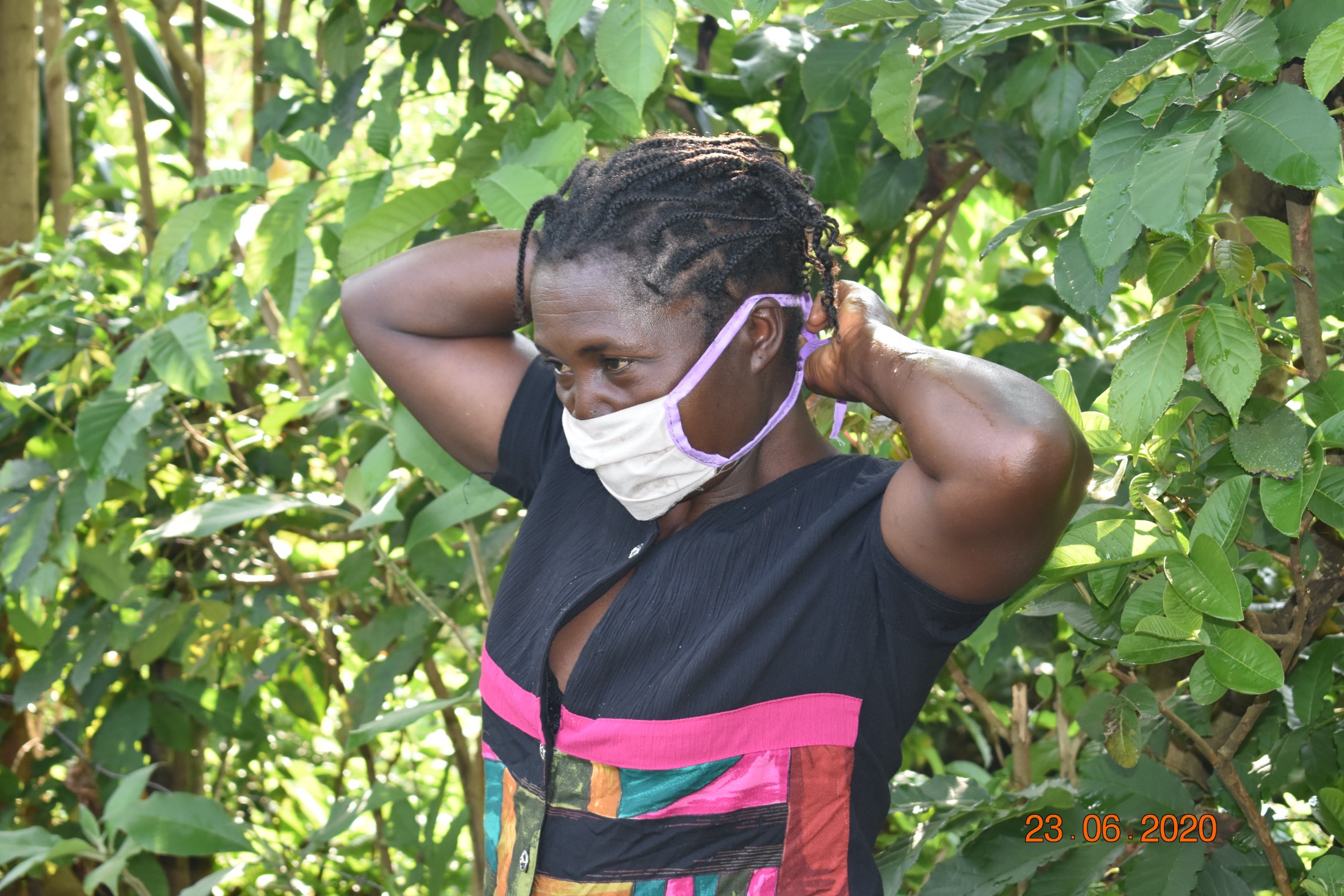
Serilah puts on her mask.
“Matters of hygiene and sanitation and mask-making training has really been helpful. [We are now] washing hands thoroughly with soap and water as many times as possible, keeping away from social places like funerals, and wearing face masks whenever we leave our homes.”

Serilah actively participates in the COVID-19 refresher training we held in Shikhombero on the day of her interview.
Training Officer Jacquey confirmed that “the community is so grateful for the clean water since it helps them to carry out hygiene and sanitation. The community members who attended the [COVID-19] training seemed to be knowledgeable about matters concerning COVID-19 since all of them came wearing face masks.”
Our team continues to monitor Atondola Spring to ensure that Serilah and every community member in Shikhombero maintain their vital connection to good hygiene and sanitation during the pandemic: clean water.
Respond with us to provide essential services and support during the COVID-19 pandemic.
Home More Like ThisTweet